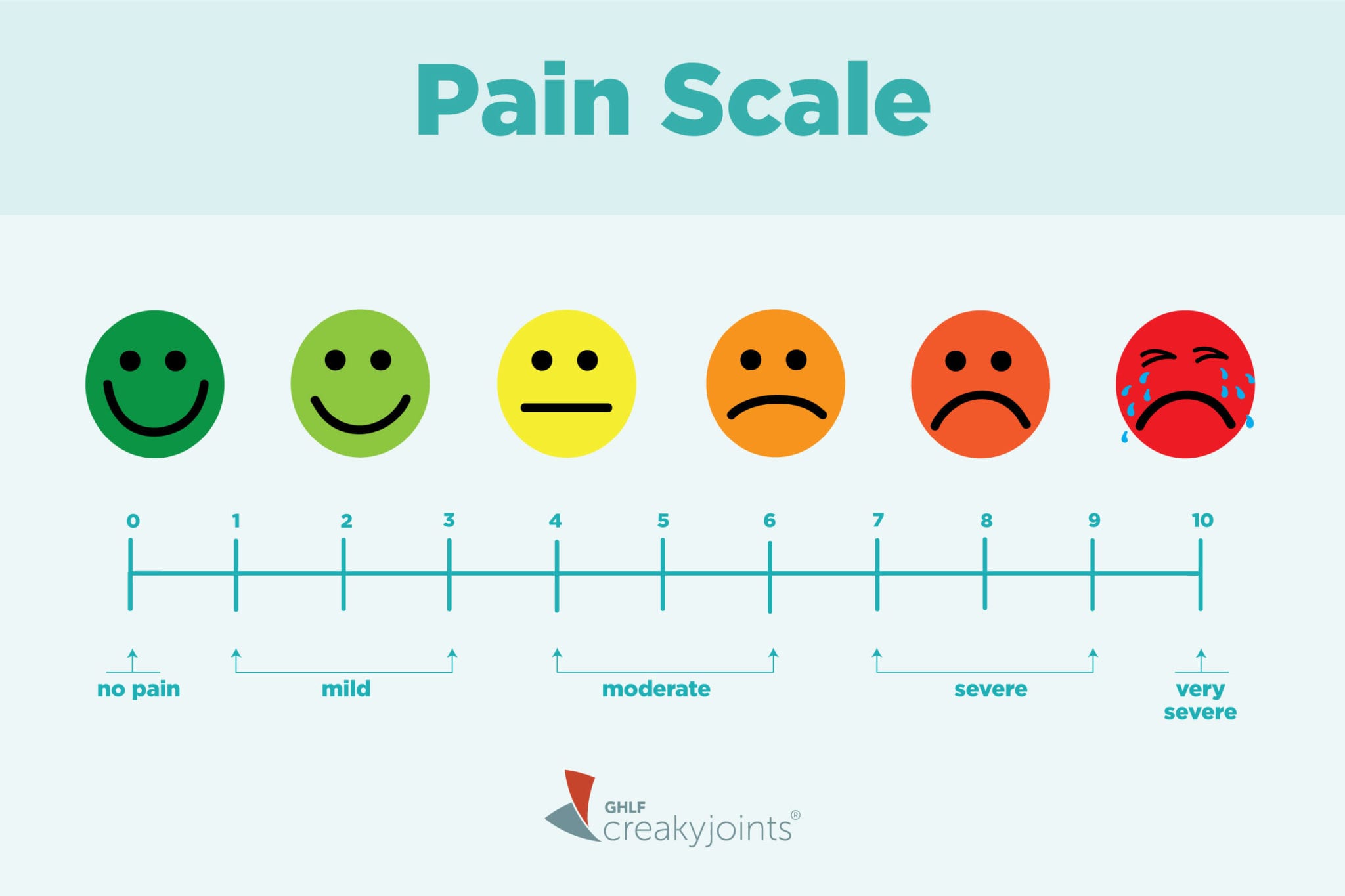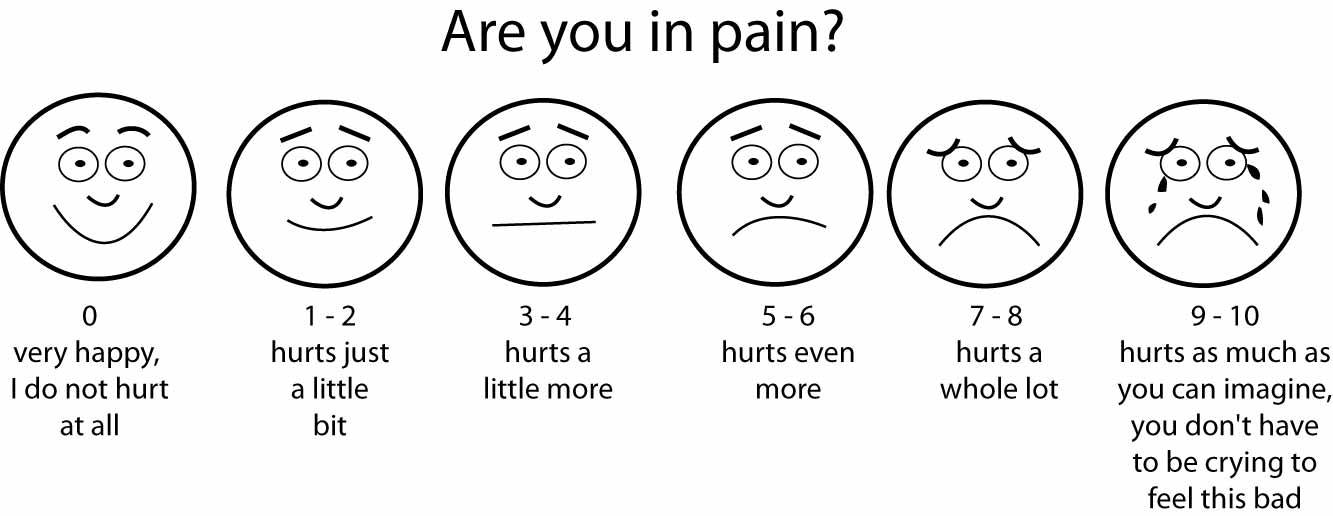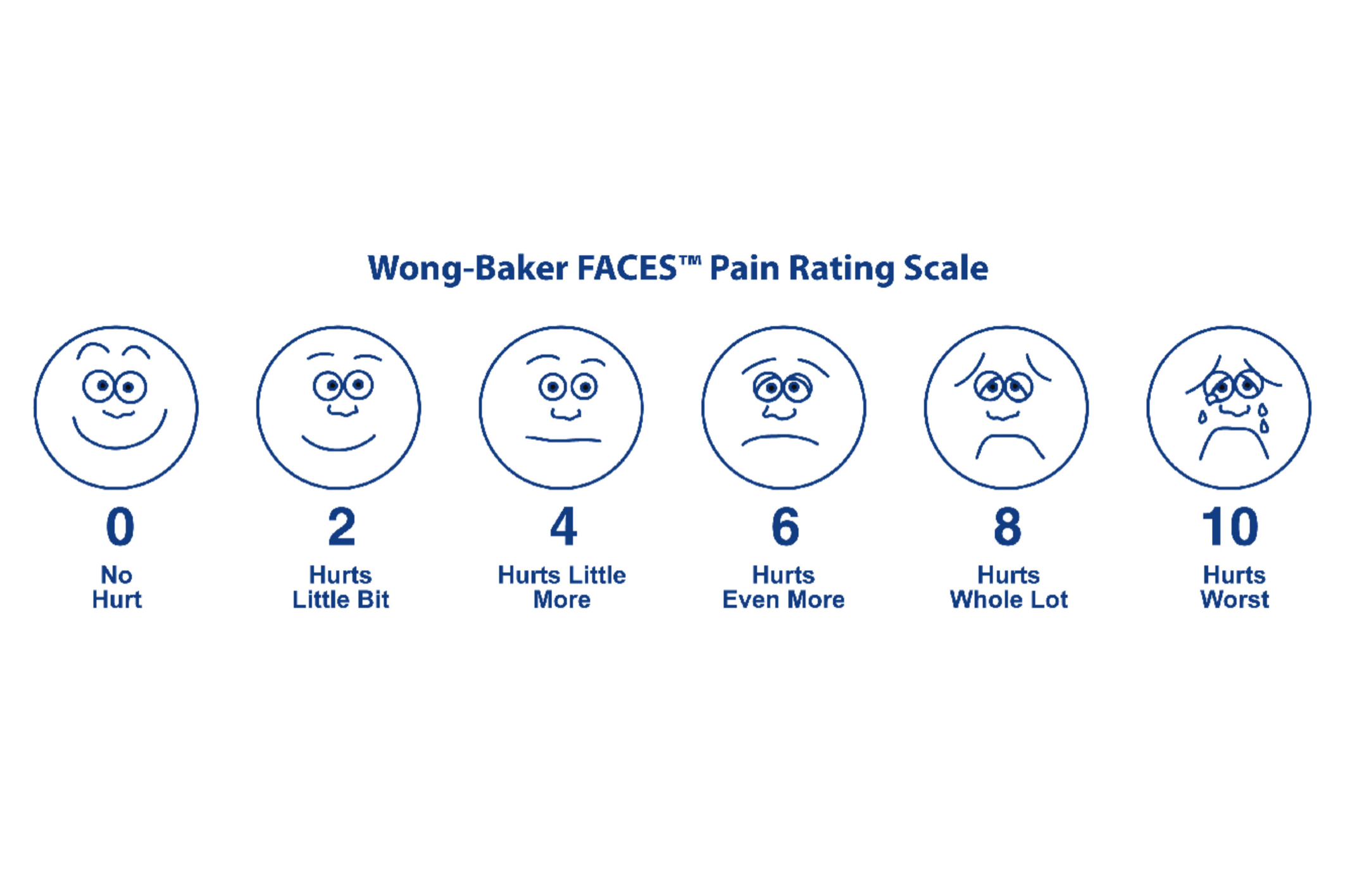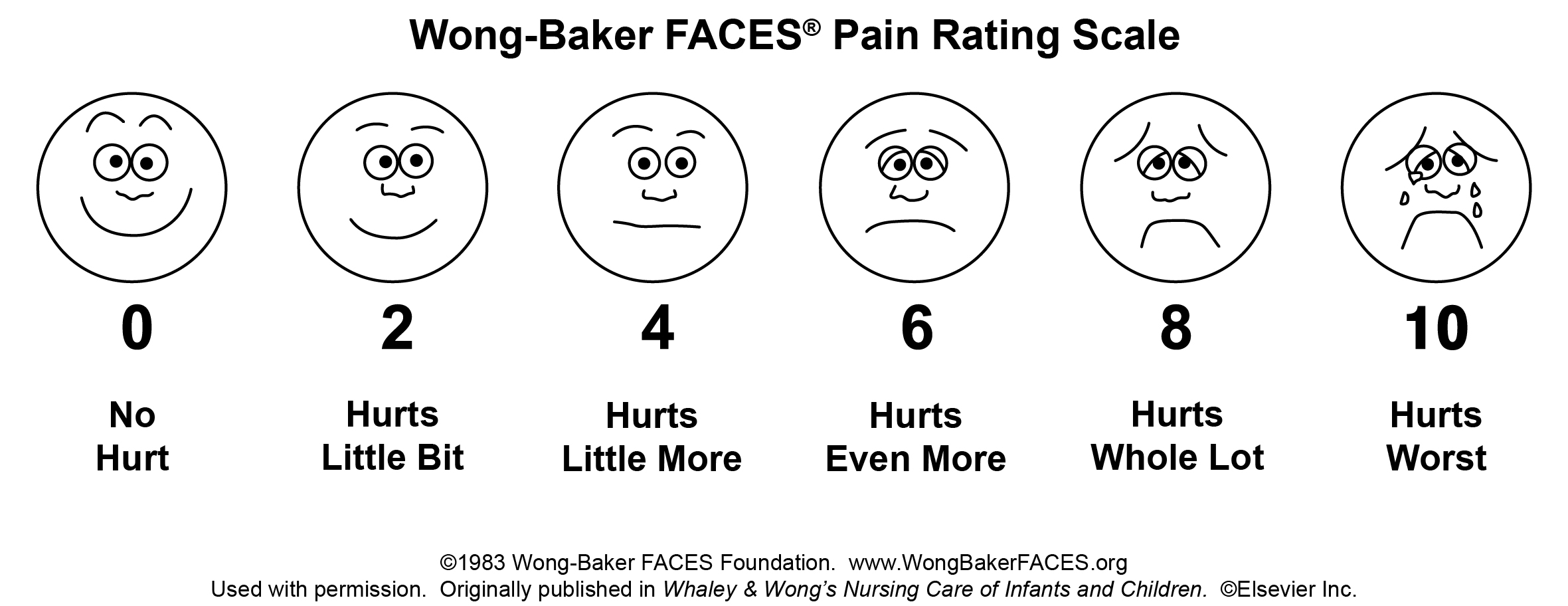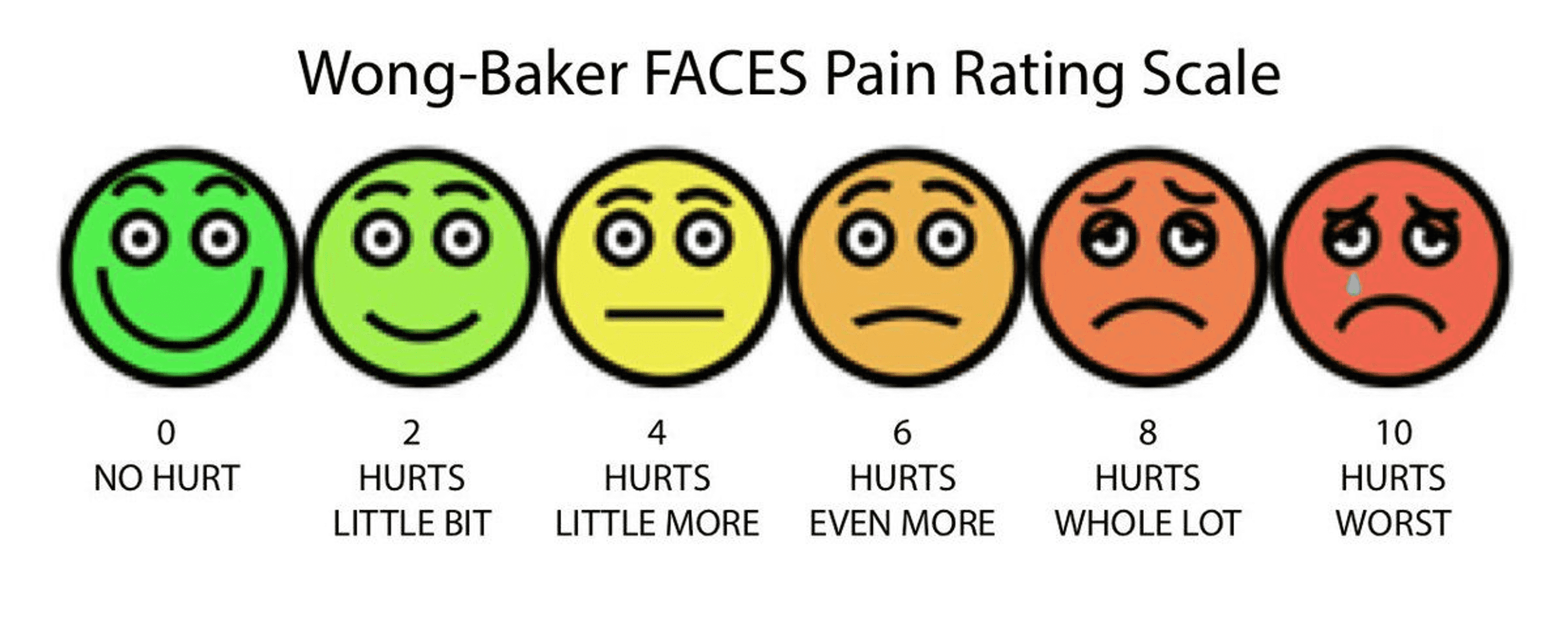Printable Faces Pain Scale
Printable Faces Pain Scale - Web several types of pain scales are in use for acute, chronic, and neuropathic pain. Pain intensity rating scale useful for all older adults, including those with mild to moderate cognitive impairment. Web the scale consists of six faces that range from no pain at all to the worst pain imaginable. Translation and adaptation for use in many cultures. Rating scale is recommended for persons age 3 years and older. “the faces show how much pain or discomfort someone is feeling. Face 2 hurts just a little bit. Web see the nips scale for the description of infant behavior in each indicator group. Face 4 hurts a little. The emotional faces range from smiling to grimacing. Face 2 hurts just a little bit. Web the faces pain scale shows reliability and consistency when pain ratings are assigned by children, especially as they are associated with related pain experiences. Face 2 hurts just a little bit. Rating scale is recommended for persons age 3 years and older. Web see the nips scale for the description of infant behavior in each indicator group. Children match their level of pain. Web several types of pain scales are in use for acute, chronic, and neuropathic pain. Infants should be observed for one minute in order to fully assess each indicator. Web the scale consists of six faces that range from no pain at all to the worst pain imaginable. Find out when to see a doctor and the pros and cons of each scale. Find out when to see a doctor and the pros and cons of each scale. Whether your pain comes on suddenly (acute), persists for several months. Web explain to the person that each face represents a person who has no pain (hurt), or some, or a lot of pain. Face 2 hurts just a little bit. It shows six faces. Translation and adaptation for use in many cultures. Face 0 doesn’t hurt at all. The face on the left shows no pain. Face 4 hurts a little. It shows six faces with different expressions of pain and requires no. Children match their level of pain. Pain intensity rating scale useful for all older adults, including those with mild to moderate cognitive impairment. The face on the left shows no pain. Web see the nips scale for the description of infant behavior in each indicator group. These faces show how much something. Find out when to see a doctor and the pros and cons of each scale. The scale shows a series of faces ranging from a happy face. Web ask the person to choose the face that best describes how he is feeling. Web see the nips scale for the description of infant behavior in each indicator group. Face 0 doesn’t. Face 2 hurts just a little bit. Web explain to the person that each face represents a person who has no pain (hurt), or some, or a lot of pain. Explain to the person that each face is for a person who feels happy because he has no pain (no hurt) or sad because he has some. Face 4 hurts. Find out when to see a doctor and the pros and cons of each scale. Translation and adaptation for use in many cultures. Web explain to the person that each face represents a person who has no pain (hurt), or some, or a lot of pain. Face 0 doesn’t hurt at all. Web explain to the person that each face. The emotional faces range from smiling to grimacing. Whether your pain comes on suddenly (acute), persists for several months. Web the scale consists of six faces that range from no pain at all to the worst pain imaginable. Rating scale is recommended for persons age 3 years and older. Infants should be observed for one minute in order to fully. Web ask the person to choose the face that best describes how he is feeling. Face 2 hurts just a little bit. Children match their level of pain. Web ask the person to choose the face that best describes how he is feeling. Face 0 doesn’t hurt at all. Web several types of pain scales are in use for acute, chronic, and neuropathic pain. Pain intensity rating scale useful for all older adults, including those with mild to moderate cognitive impairment. Web see the nips scale for the description of infant behavior in each indicator group. Face 2 hurts just a little bit. Face 4 hurts a little. Whether your pain comes on suddenly (acute), persists for several months. Web the scale consists of six faces that range from no pain at all to the worst pain imaginable. Rating scale is recommended for persons age 3 years and older. Face 0 doesn’t hurt at all. Children match their level of pain. Rating scale is recommended for persons age 3 years and older. Web see the nips scale for the description of infant behavior in each indicator group. Web the faces pain scale shows reliability and consistency when pain ratings are assigned by children, especially as they are associated with related pain experiences. Infants should be observed for one minute in order to fully assess each indicator. Rating scale is recommended for persons age 3 years and older. Explain to the person that each face is for a person who feels happy because he has no pain (no hurt) or sad because he has some. Web several types of pain scales are in use for acute, chronic, and neuropathic pain. The face on the left shows no pain. It uses a combination of faces, numbers, and. Whether your pain comes on suddenly (acute), persists for several months. It shows six faces with different expressions of pain and requires no. The emotional faces range from smiling to grimacing. Face 0 doesn’t hurt at all. Children match their level of pain. Web ask the person to choose the face that best describes how he is feeling. Web the scale consists of six faces that range from no pain at all to the worst pain imaginable.Pain Scale Faces Printable
Printable Faces Pain Scale
Printable Faces Pain Scale
Pain Faces Scale Printable
Pain Scale Chart Printable PDF
Printable pain scale faces 1 10 delightvsa
Printable Pain Scale With Faces Customize and Print
Printable Faces Pain Scale
Printable Face Pain Scale
Printable Pain Scale Faces
Face 2 Hurts Just A Little Bit.
Web Learn About Different Pain Scales, Such As Faces, Numerical, And Verbal, And How They Work.
“The Faces Show How Much Pain Or Discomfort Someone Is Feeling.
These Faces Show How Much Something.
Related Post:
